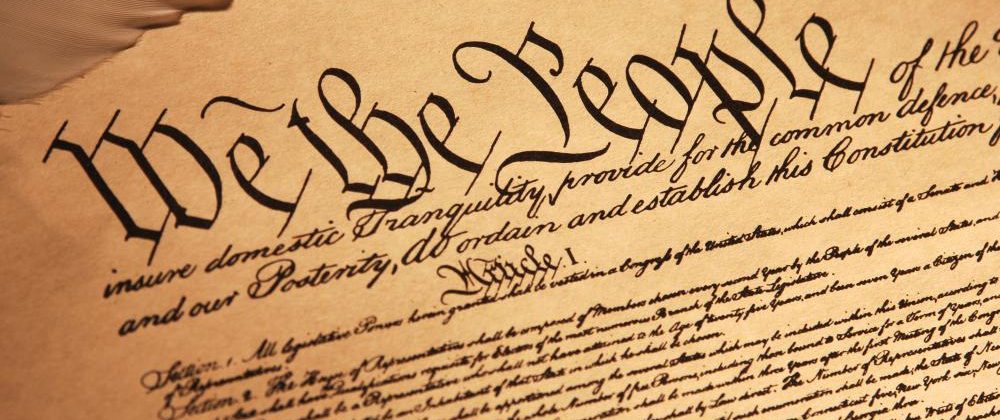

Donald Trump may achieve the most consequential first one hundred days of any presidency since Franklin Roosevelt’s administration in 1932. What FDR accomplished through legislation, Trump is achieving through executive action. This reliance on executive action partly reflects our modern comfort with presidential power. Additionally, while FDR’s success during his first hundred days stemmed from his enormous congressional majorities, Trump, lacking such support, must resort to executive action.
Some affected by Trump’s orders are challenging them in federal court, arguing violations of federal statutes like the Administrative Procedure Act. While I’m no expert on administrative procedure, I am willing to believe the administration may indeed be violating some laws. I suspect they’re unconcerned. Trump’s actions appear designed, at least partially, to mount a direct constitutional challenge to the administrative state.
There are two compelling schools of thought on this matter. Defenders of the civil service and administrative state correctly argue that strong civil service protections shield federal employees from political influence, ensuring fair and equitable administration of law. When faced with improper requests—whether to circumvent procedures for political donors or target presidential enemies through the IRS—protected employees can refuse without fear of retaliation. Furthermore, federal hiring should prioritize competence over political connections. This system promotes honest government administration.
Additionally, we benefit from continuity of practice. As James Madison notes in Federalist 62, “malleable” law damages both the economy and national reputation. Citizens need predictable laws, and a permanent, professional civil service supports this goal.
However, there’s a strong constitutional counterargument that contradicts the “civil service” view. The Constitution states, “The executive power shall be vested in a President of the United States.” All executive power therefore inheres in one person, and the authority of all executive branch employees flows from the president. Like any executive, the president should have the power to choose his staff, particularly when employees actively obstruct presidential directives.
Consider any organization: if employees tasked with implementing policy actively undermine it and spread distrust of leadership, wouldn’t any executive be justified in removing them? A former student who served as a political appointee in George W. Bush’s Department of Homeland Security described civil service employees deliberately undermining Bush administration initiatives while displaying incompetence and laziness, protected by their civil service status.
The situation intensified during Trump’s administration, where segments of the executive branch openly opposed his presidency. While one need not believe in “deep state” conspiracies, there was undeniably a “Never Trump” element within the bureaucracy. The Constitution suggests the president must have the power to govern the executive branch effectively.
This raises a fundamental question: if a government sector isn’t under congressional management yet operates independently of presidential control, which branch does it serve? Our Constitution establishes three branches, not four. While the bureaucracy is sometimes called the “fourth branch,” this contradicts constitutional order. Executive branch agencies cannot operate outside presidential control when all executive power is vested in the president.
Recent revelations highlight governmental departments operating with minimal oversight, unsupervised budgets, and leadership resistant to accountability. The federal government’s financial management would be criminal in the private sector, with most agencies unable to provide credible financial statements—effectively operating like Enron in the 1990s, unable to account for taxpayer funds.
While civil service protections serve important purposes, they cannot override the constitutional requirement that the executive branch remain accountable to the president, who is in turn accountable to the people. Though distrust of Trump may be warranted, our constitutional order provides multiple accountability mechanisms: the courts, congressional oversight, and a free press to expose presidential misconduct.
If a president cannot effectively manage the executive branch—if unelected bureaucrats can systematically undermine the elected President—we’ve abandoned our constitutional order. In such a case, complaints about “undermining democratic norms” ring hollow.
Before signing on to a shift back towards Jacksonianism with regards to government employees, I’d like to see a rigorous and comprehensve account of just when and how and with what consequences these employees have been “systematically undermining” any elected presidents. (Best make that account comparative, too.) It’s not that I’m particularly sceptical about any claims having some bite, I’d just like to know exactly what it is we have–and why it runs as it does–before making a big leap to something different (especially something that’s been tried and found wanting.) Anecdotes from former students aren’t unuseful, but, as anyone who has ever worked anywhere probably knows, single-perspective accounts from employees are often quite fallible.